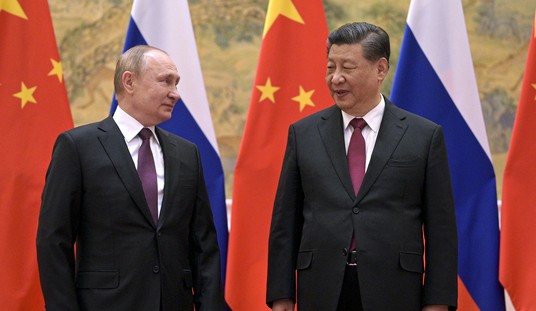People have often heard the phrase “to be someone,” but whether you can prove you are that one has never been easy. The Microsoft blog notes that having an identity is necessary for just about anything these days. “In the U.S. and abroad, fundamental rights and services like voting, healthcare, housing and education are tethered to legal proof of identification – you can’t participate if you don’t have it. Yet nearly one in six people worldwide – the majority of them being women, children and refugees – live without it. The lack of legal documentation not only strips access to critical services, it puts those trapped in the ‘identity gap’ at risk for larger issues including displacement and child trafficking.” In fact the ID2020 coalition — of which Microsoft is a part — claims identity is a “fundamental human right” and is working towards universally providing it.
Article 6 of the Universal Declaration on Human Rights stipulates that “Everyone has the right to recognition everywhere as a person before the law.” The Sustainable Development Goals (2015-2030) include target 16.9 which aims to “provide legal identity to all, including birth registration, by 2030.” Critically, this must include the >20M refugees worldwide.
But wait a minute. Doesn’t this “fundamental right” collide with it’s Woke opposite, the fundamental right not to present identification? The American Civil Liberties Union has repeatedly argued that ID is onerous, expensive, discriminatory and oppressive. In a recent fact sheet the ACLU made the following arguments against identity:
Millions of Americans Lack ID. 11% of U.S. citizens – or more than 21 million Americans – do not have government-issued photo identification.
Obtaining ID Costs Money. Even if ID is offered for free, voters must incur numerous costs (such as paying for birth certificates) to apply for a government-issued ID.
Minority voters disproportionately lack ID. Nationally, up to 25% of African-American citizens of voting age lack government-issued photo ID, compared to only 8% of whites.
States exclude forms of ID in a discriminatory manner. Texas allows concealed weapons permits for voting, but does not accept student ID cards.
How can having ID be both a right and oppressive at the same time? To understand the apparent paradox, it’s useful to look at the actual technical mechanism of what “being someone” means. “There are three parts to identity: claims, proofs, and attestations.”
- An identity claim is an assertion made by the person or entity. “My name is XY and I am eligible to [vote, work, live, be] here” is the essential claim in the voting example.
- Proofs. A proof is some form of document that provides evidence for the claim. The proof demanded by the law is cited as “government-issued photo ID.” The ACLU wants student ID cards and other proofs to be accepted.
- Attestations. “An attestation is when a third party validates that according to their records, the claims are true. ” In the former case government attests; in the latter a university.
Both the ACLU and the government want to assert “my name is XY and I am eligible to [vote, work, live, be] here” but differ as to the proofs and attestations needed to support it. (At the extreme, some even feel identity only requires asserting it.) But for the most part, differences will boil down to the question of which centralized identity solutions will prevail in a given setting: my system or your system; the ACLU’s identity scheme or the government’s?
The proposed fix to this problem is “neither.” Many in the tech industry, including Microsoft, advocate replacing them with a “self-sovereign, blockchain-based identity system” independent of any centralized curation. It is called “self-sovereign” because the individual creates “a self-generated identification number derived from public key, and a corresponding private key” that lives with him from life to death, tracked on a distributed ledger like a blockchain.
Since you could prove ownership of the record on the distributed ledger through the private key with the related attestations signed “with digital signatures – for example, passport agencies, hospitals, driving licence authorities, police, etc.” — then any individual could refer to a cryptographically secured, unforgeable identity record available from anywhere.
Blockchain is one type of a distributed ledger. Distributed ledgers use independent computers (referred to as nodes) to record, share and synchronize transactions in their respective electronic ledgers (instead of keeping data centralized as in a traditional ledger). Blockchain organizes data into blocks, which are chained together in an append only mode. … the building block of “internet of value,” and enable recording of interactions and transfer “value” peer-to-peer, without a need for a centrally coordinating entity. “Value” refers to any record of ownership of asset — for example, money, securities, land titles — and also ownership of specific information like identity, health information and other personal data.
All of this will be performed through some interface for convenience. It can be configured to share only the absolute minimum information required. “Need to know, but not more: Authorities could provide ‘bundles’ of attested claims, such as ‘over 18’, ‘over 21’, ‘accredited investor’, ‘can drive cars’ etc, for the user to use as they see fit. The identity owner would be able to choose which piece of information to pass to any requester. For example, if you need to prove you are over 18, you don’t need to share your date of birth, you just need a statement saying you are over 18, signed by the relevant authority.”
This ability to tag, track and minimally share information has huge economic implications. It enables a potentially huge market through a reliable register of things and a world where everyone is “someone.” That glittering opportunity is leading the tech companies on. But the political ramifications of self-sovereign identity are far less clear. Would the Left like it? Would conservatives? Perhaps they haven’t given the matter enough thought yet.
On the one hand it makes wide-ranging open-ended searches harder by moving information from centralized databases to individually encrypted records on the blockchain. Your ID won’t say “illegal alien” at the polling station but simply “can’t vote.” It won’t tell border control your life history, just whether you have a visa valid for entering the country, quite a useful feature in this age of hostage diplomacy. But on the other hand it will make identity arbitrage of the sort made possible by the ACLU harder to pull off. You can’t impersonate anyone. By acquiring a lifelong, unique and definite identity you can be a member of many clubs, just not a club that won’t accept you as a member.
Requiring explicit membership to enter a club room makes it possible to create virtual walls. GE engineers have constructed virtual walls using RFID chips “to help pinpoint the location of mobile medical equipment in large rooms.” That can be done to people too. A country sufficiently subdivided by virtual walls won’t need physical border walls to the extent it does today. A world without physical walls could still be so granularly subdivided by identity that a person could for all intents and purposes be a prisoner with invisible chains. Is this a good idea? “To be someone” has always been a two-edged sword, perhaps never more than in the blockchain age.
Would you like to be someone?
Follow Wretchard on Twitter
For a list of books most frequently purchased by readers, visit my homepage.
Support the Belmont Club by purchasing from Amazon through the links below.
Books:
Custer’s Trials: A Life on the Frontier of a New America, by T.J. Stiles. Winner of the 2016 Pulitzer Prize in History, this book paints a portrait of Custer that demolishes historical caricature, revealing a volatile, contradictory, intense person — capable yet insecure, intelligent yet bigoted, passionate yet self-destructive, a romantic individualist at odds with the institution of the military (he was court-martialed twice in six years). The key to understanding Custer, Stiles writes, is keeping in mind that he lived on a frontier in time. In the Civil War, the West, and many other areas, Custer helped to create modern America, but could never adapt to it. Stiles casts surprising new light on a near-mythic American figure, a man both widely known and little understood.
Tribe: On Homecoming and Belonging, by Sebastian Junger. We have a strong instinct to belong to small groups defined by clear purpose and understanding or “tribes,” a connection now largely lost. But its pull on us remains and is exemplified by combat veterans who find themselves missing the intimate bonds of platoon life at the end of deployment and the high rates of post-traumatic stress disorder suffered by military veterans today. Combining history, psychology, and anthropology, Junger explores what we can learn from tribal societies about loyalty, belonging, and the eternal human quest for meaning. He explains why we are stronger when we come together, and how that can be achieved even in today’s divided world.
For a list of books most frequently purchased by readers, visit my homepage.
Did you know that you can purchase some of these books and pamphlets by Richard Fernandez and share them with your friends? They will receive a link in their email and it will automatically give them access to a Kindle reader on their smartphone, computer or even as a web-readable document.
The War of the Words, Understanding the crisis of the early 21st century in terms of information corruption in the financial, security and political spheres
Rebranding Christianity, or why the truth shall make you free
The Three Conjectures, reflections on terrorism and the nuclear age
Storming the Castle, why government should get small
No Way In at Amazon Kindle. Fiction. A flight into peril, flashbacks to underground action.
Storm Over the South China Sea, how China is restarting history in the Pacific
Tip Jar or Subscribe or Unsubscribe to the Belmont Club










Join the conversation as a VIP Member